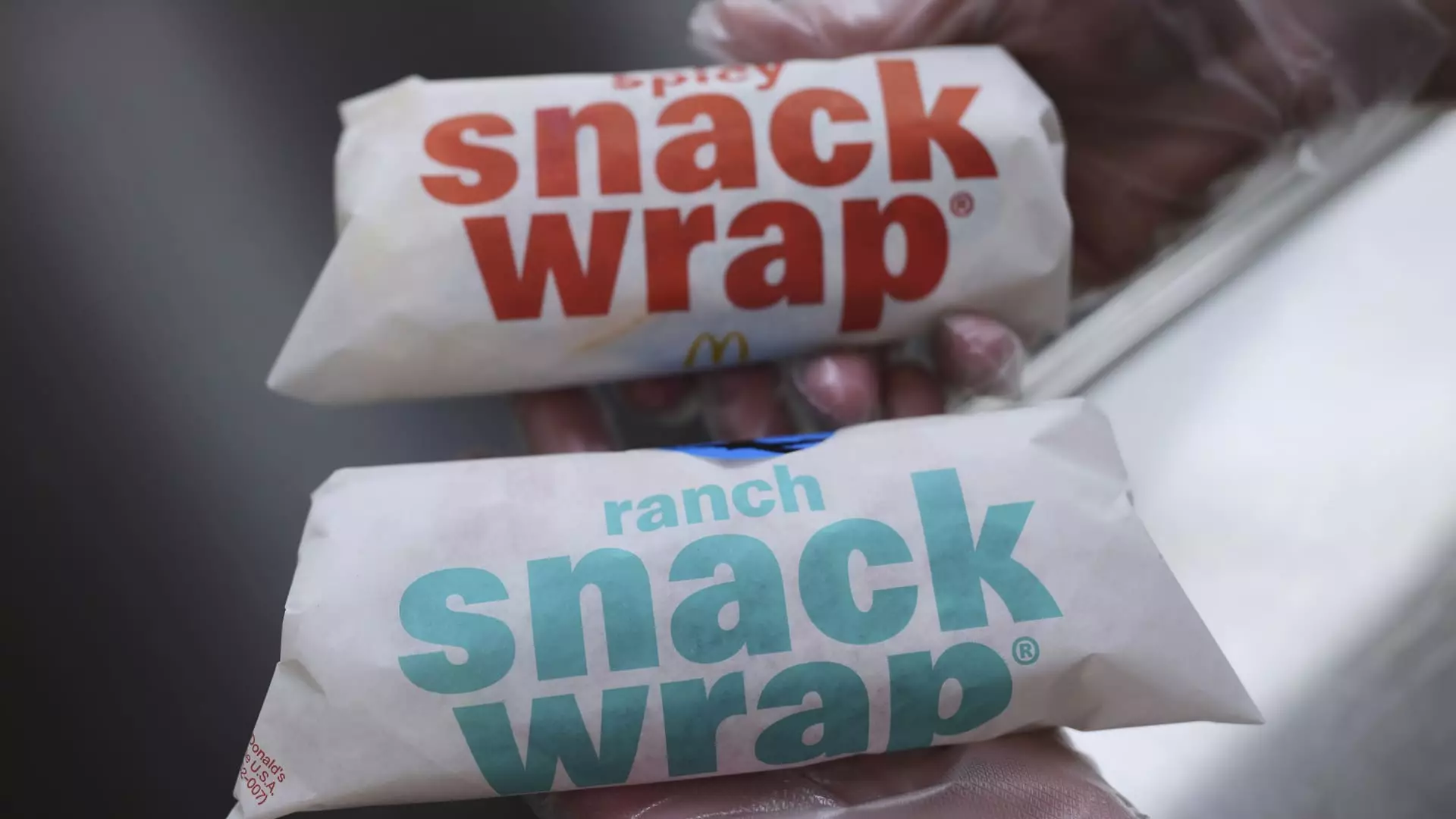In an era where fast-food giants struggle to distinguish themselves amidst a saturated market, McDonald’s recent decision to bring back the beloved Snack Wrap exemplifies the potent role of nostalgia in brand revitalization. For nearly a decade, this menu item languished on the sidelines, yet its return has shattered expectations, illustrating that sometimes the most powerful innovations stem from honoring the past. This strategy goes beyond mere marketing; it taps into consumers’ collective memories and emotional connections, which are often undervalued commodities in today’s profit-driven industry. It is a testament to McDonald’s recognition that in a rapidly changing consumer landscape, familiarity breeds loyalty and sparks renewed interest.
This comeback underscores an essential truth: consumers crave authenticity and reminders of their shared experiences. The Snack Wrap’s evolution from a fleeting menu item to a flagship choice exemplifies how brands can harness nostalgic appeal not just to boost sales temporarily, but to anchor a longer-lasting relationship with their customer base. As McDonald’s leverages this historical affection, it effectively reinvents its relevance, transforming a decade-old favorite into a symbol of resilience rather than relic.
The Power of Customer Loyalty and Market Psychology
The immediate response to McDonald’s reintegration of the Snack Wrap highlights an often-underestimated factor in modern marketing—customer loyalty. Recent data shows a surge in foot traffic, with some locations even experiencing shortages of ingredients like lettuce—indicative of a spontaneous, intense demand that cannot easily be manufactured. This phenomenon offers insights into consumer psychology: when a brand aligns its offerings with existing emotional bonds, demand tends to outpace traditional marketing efforts.
The loyalty metrics are even more telling. A survey indicates that 90% of verified buyers intend to purchase the Snack Wrap again, revealing that the item’s appeal extends beyond transient novelty. Most consumers bought the ranch flavor, a testament to the importance of flavor familiarity in customer retention strategies. The high repeat intention demonstrates that McDonald’s isn’t just riding a fleeting wave of social media hype; it is cultivating a committed customer segment that perceives genuine value in the product.
This phenomenon raises questions about the current marketing landscape: are chains over-investing in flashy promotions or temporary discounts that often erode margins? Or are they better served by fostering authenticity and meaningful engagement through products that evoke personal nostalgia? McDonald’s appears to lean toward the latter, recognizing that emotional resonance and consistent product quality are more sustainable paths to growth than short-term gimmicks.
Challenges and Opportunities in an Evolving Food Industry
While the initial buzz and sales uplift from the Snack Wraps are promising, they also illuminate structural challenges facing McDonald’s and similar chains—namely, the delicate balance between promotional tactics and profitability. The company’s decision to offer the snack wraps at $2.99 each and incorporate popular items like McCrispy Strips reflects a savvy understanding that innovation need not be costly but must be meaningful.
Moreover, the recent sales improvements are occurring against a backdrop of sluggish overall performance, with some recent quarterly declines threatening the chain’s market stability. However, these setbacks serve as a reminder that reliance on discounts and limited-time offers isn’t sustainable long-term. McDonald’s strategic reinvestment in familiar, well-loved products like the Snack Wrap suggests a shift toward more thoughtful innovation—one that considers consumer desires for both quality and nostalgia.
Looking ahead, McDonald’s faces the ongoing challenge of maintaining relevance in a fast-changing consumer landscape that increasingly values transparency, health-conscious options, and sustainability. The Snack Wrap’s resurgence hints at an underlying truth: when executed with authenticity and historical awareness, even a fast-food staple can become a catalyst for broader brand renewal. For a industry often accused of commodification, McDonald’s current approach demonstrates that genuine connections—rooted in familiarity and trust—are still the most effective tools for securing a competitive edge.

Leave a Reply